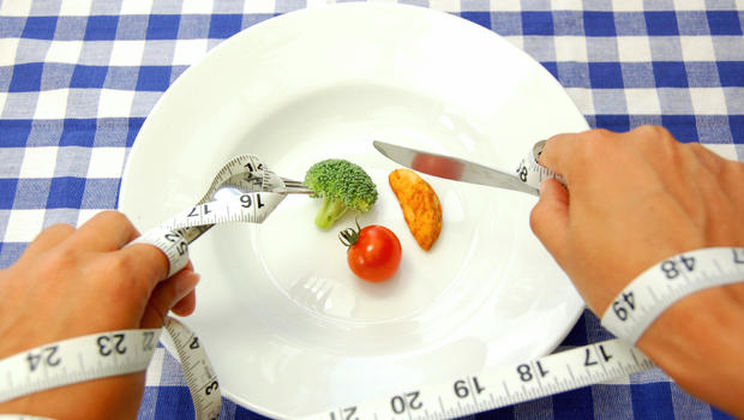To lose weight, you need to be in a caloric deficit. The more calories you eat than burn, the more you gain weight. But what most people don’t understand is that eating in more of a deficit isn’t always better. So while it is logical that to lose fat we need to eat less, you should understand that the BIGGER the deficit doesn’t mean you will lose the weight FASTER.
When it comes to dieting, food should always be kept as high as possible. This is true for many reasons. If you were to constantly eat 1000-1200 a day there would come a time where you would binge and cave in to the cravings. Slashing calories makes you HANGRY and irritable and thus, increases cravings. It’s simply impossible to live on such low calories for too long which is why most people hit a plateau or gain all the weight back that they initially lost. In addition, being on such low calories makes energy levels drop drastically, thus feeling tired, lazy, lethargic and not much strength for a good workout. Remember, a calorie is a unit of energy, so the more you take away the less energy you have. Moreover, if you constantly eat 1000, where do you go from there when your weight loss hits a plateau?
Your metabolisms will adapt to whatever you throw at it, so if you consistently under eat, your body will adapt to the amount of calories you are feeding yourself in order to survive. This means that the 1000 calories has to be lowered for the body to burn fat.
Eating too little also taps in to your muscle for energy, and the last thing you want to do is to lose muscle. Muscle helps burn calories when resting and takes up less space in the body making us leaner. The goal when losing weight is to preserve as much muscle mass. Not lose it!
Conversely,
Instead of such drastic measures, if you were to be in a small or moderate deficit, it’s easier to have willpower and control cravings. By eating high volume foods you are able to fit other things in to your diet that you crave that may be more calorie dense. Thus, you are more consistent and hence, more successful over time with your weight loss.
So while it may take a bit longer to lose the weight being in a slightly moderate deficit, the good news is that there will be NO gaining it back and you will be able to lose weight longer. Because the longer you can sustain a diet, the more results you will have. Slow and steady wins the race…again.
While it’s certainly ok to under eat and essential in order to lose weight, don’t do so in such a fashion where you take it to an extreme. There are no “21 day fix” diets that work. There are no “cleanses” that make you lose fat, only water weight which is why the scale goes down. The healthy, simple way to lose weight is to be in a calorie deficit on a diet plan that you can adhere to, not one that makes you miserable.
For an ideal calorie deficit, take away 10-20% of your maintenance intake calories. A sign of a good diet is where you can still lose weight, keep food as high as possible AND have energy, and not run down. If you do feel weak or tired all the time, raise your calories a bit. There is NO one size fits all plan, which is why cookie cutter diets don’t work either, which I why I customize EVERY clients macros to suit their bodies and needs. Find what works for YOU!
And if you need help in finding a Plan that is right for you, head over to my Nutrition Plans. I promise you won’t be starving, you won’t have to cut out any foods you love, and you will have more energy and feel great within the first 10 days on the plan. Not to mention, that counting macros is a plan you can do forever, which in turn becomes a lifestyle, which means only one thing ~ success.









